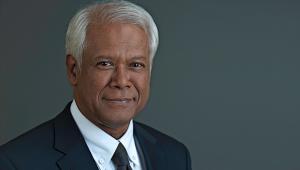In reply to the letter from my New Zealand compatriot Heather Kinsey (‘IFRS is not the cure-all it seems’, November 14—20), I suggest that the charges against International Financial Reporting Standards and International Public Sector Accounting Standards — that they produce confusing and even inaccurate accounts — are not entirely the fault of the standards.
They are both principle-based sets of standards (rather than prescriptive) and, as such, leave a lot of room for ‘creativity’ and this can be used to your advantage.
I’m currently reading Nick Leeson’s book, Rogue Trader, and that story is the perfect example of how deceit, dishonesty and a lack of accounting diligence and transparency brought down an old and large bank — Barings.
Similarly, I know of some organisations that have used the IFRS to avoid disclosure and clarity, simply because the standards leave so much room for interpretation.
This, like the Barings experience, is a recipe for loss and suffering all round.
As a change consultant, I worked with a council in New Zealand, where, despite the best intentions of the accounting and audit people, the political hierarchy above ensured that the immense effort and cost of the change to IFRS bore only rotten fruit.
This was because of a strange belief that giving the stakeholders (ratepayers) too much information also gave them too much power… over the political hierarchy!
Everything either benefits or limits us, depending on how we choose to use it. Now that I’m in London, I see the same potential for abuse or opportunity as in New Zealand. I strongly urge you all to use these standards for benefit and progress.
Openness, transparency and disclosure definitely help the success of any organisation. Any organisation that is committed to the change should make the most of the effort and cost of it, by using the standards to ensure the best of accounting and governance disciplines, for the greater benefit of your organisation.
The standards allow this and it’s crazy to do otherwise.
Philip Bradbury, Sutton, Surrey











